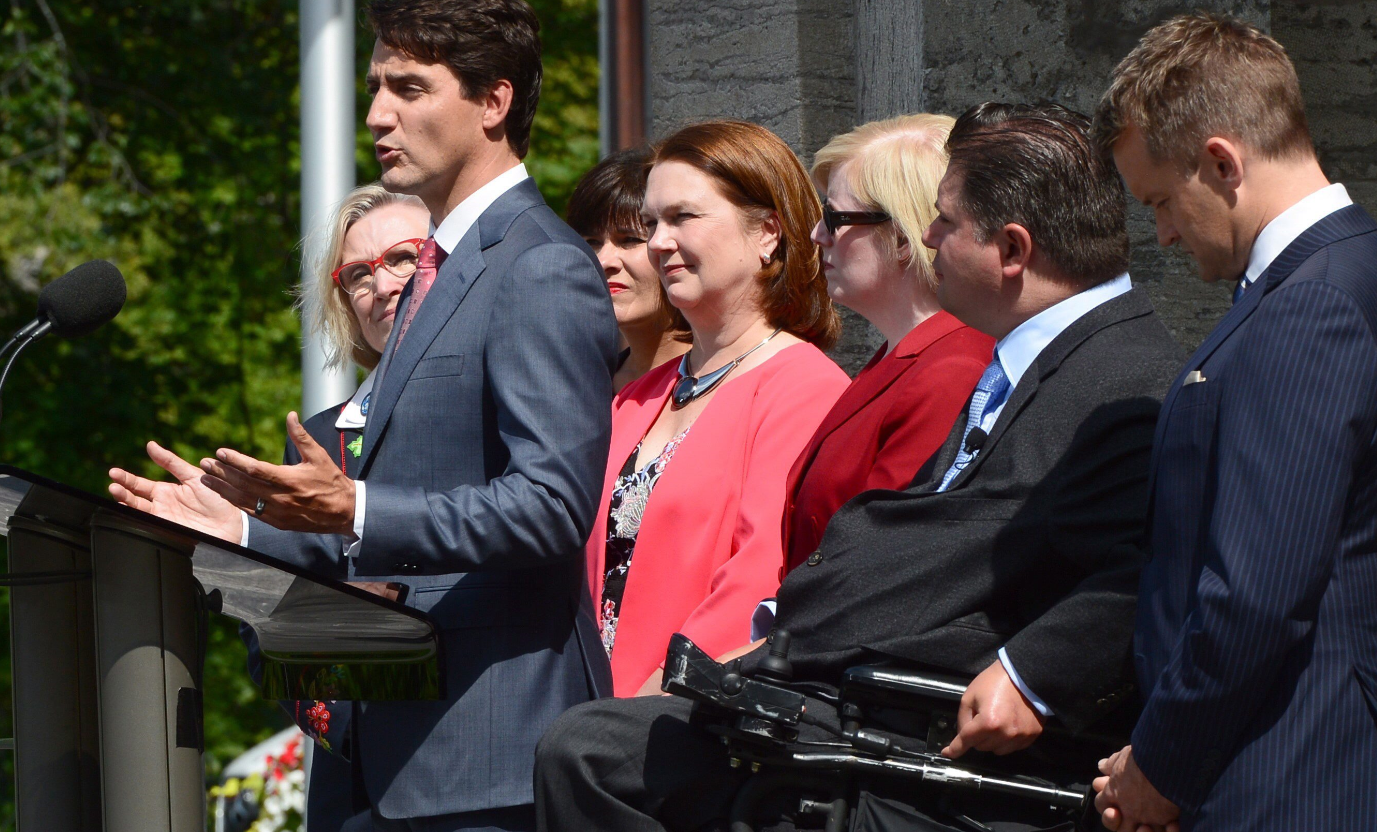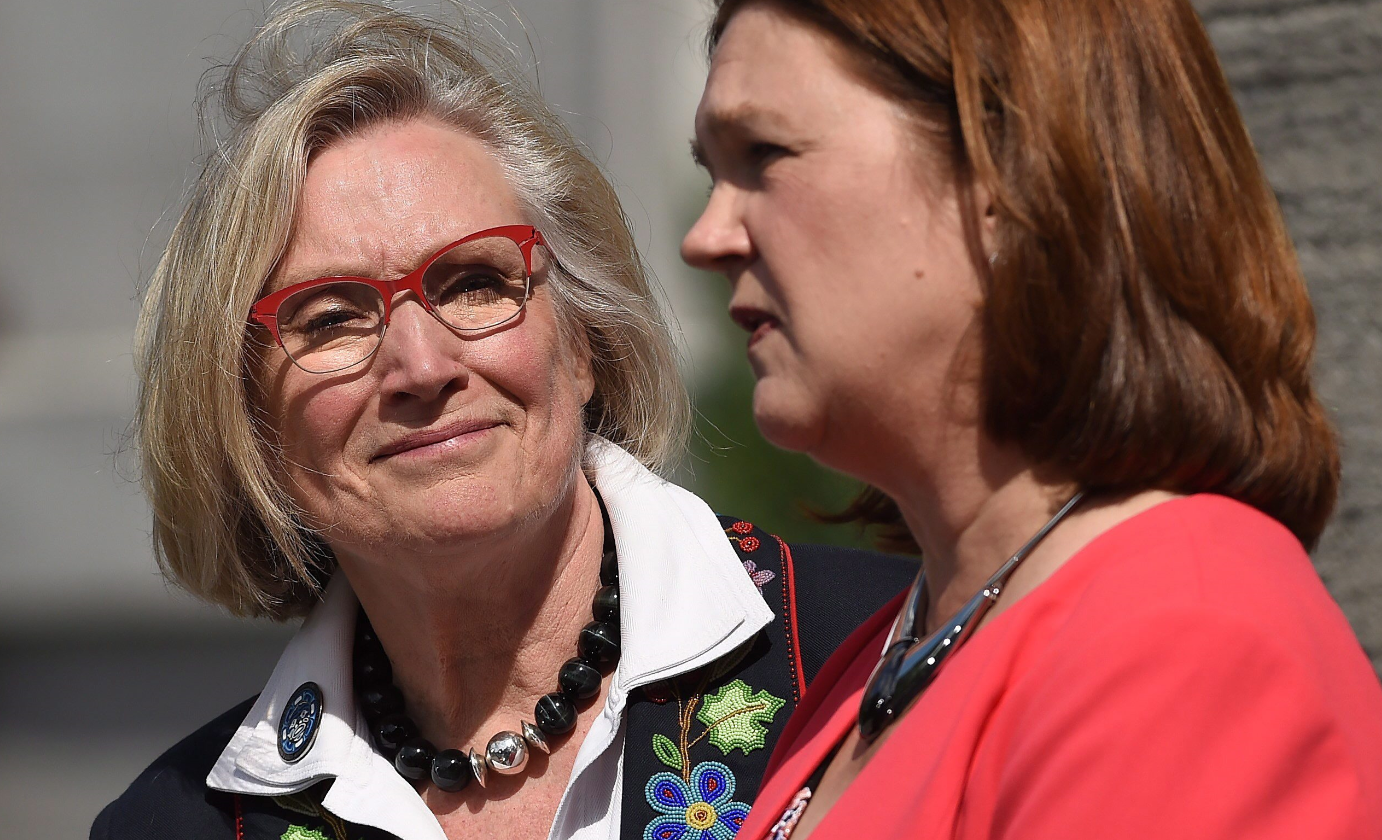Canada’s department of Indigenous and Northern Affairs gets major shake up

Indigenous and Northern Affairs Canada (INAC) got a major shake up on Monday with Prime Minister Justin Trudeau announcing it will be split into two different departments.
“There’s a sense that we have pushed the creaky old structures around INAC about as far as they can go,” Prime Minister Justin Trudeau said at a news conference in Ottawa on Monday.
“This is about recognizing the structures in place at Indigenous and Northern Affairs Canada were created at a time where the approach around the Indian Act, the approach around our engagement with Indigenous Peoples, was very much looked at in a paternalistic, colonial way.”
INAC’s restructuring will help foster better nation-to-nation relationships with First Nations and Métis Peoples and Crown-to-nation relationships with Canada’s Inuit, he said.
Two ministers, two departments

Carolyn Bennett, the current minister of Indigenous and Northern Affairs Canada, will become minister of Crown-Indigenous Relations and Northern Affairs.
Her new mandate includes leading consultations on replacing INAC with the two new departments and improving government coordination on “nation-to-nation, Inuit-Crown, and government-to-government relationships, to accelerate self-government and self-determination agreements based on new policies, laws and operational practices, and to develop a framework to advance a recognition of rights approach…”
Jane Philpott, the current health minister, will become minister of the new Department of Indigenous Services, responsible for delivering services to First Nations, Inuit and Métis people.
Child and family services, education, health, housing, food security will all be important areas for the new department but priorities will only be established after meetings with Indigenous leaders, Philpott said at a Monday news conference
“I believe that what I need to do over the coming days is connect with some of the key leaders in First Nations, Métis and Inuit communities to ask them what their priorities are, in terms of where they see the challenges and the gaps being most marked, and where they would like to see us prioritize,” she said.
Changes prompted by 1996 Royal Commission recommendations
Trudeau has made reconciliation with Canada’s Indigenous People’s one of his government’s policy hallmarks.
The decision to split INAC into two departments was inspired by recommendations made in the 1996 Royal Commission on Aboriginal Peoples, an inquiry prompted after the Meech Lake Accord defeat and the Oka crisis put Aboriginal issues at the centre of the national conversation.
A series of recommendations in the commission report centred on the need for new governance structures to better deliver services and move towards Indigenous self-government and self-determination.
The dissolution of INAC and the creation of the two new deparments are an important first step, the government said.
“These changes are modelled on the recommendations of the Royal Commission and will be finalized in cooperation with Indigenous Peoples,” a news release said.
“What we are doing today is also a next step toward ending the Indian Act, but the pace of transition will also require the leadership of Indigenous communities themselves.”
Write to Eilís Quinn at eilis.quinn(at)cbc.ca
Related stories from around the North:
Canada: Inuit must have seat at the table when Canada’s provincial, territorial leaders meet, says ITK, Eye on the Arctic
Finland: Sami group occupies island in northern Finland to protest fishing rules, Yle News
Norway: Political support for Norwegian Truth and Reconciliation Commission, The Independent Barents Observer
Sweden: Treatment of Sami people among Swedish shortcomings : Amnesty International report, Radio Sweden
Russia: More protected lands on Nenets tundra in Arctic Russia, The Independent Barents Observe
United States: U.S. transportation secretary announces efforts to speed up project development in Alaska, Alaska Dispatch News



